

- Warren Snow: Full Employment in Five Years — Sustainable Community Economic Development
- Kaitaia Zero Waste Conference
- Tachi Kiuchi
- Ray Anderson and Zero Waste of Carpets
- Stephen Tindall and Zero Waste Trust
- Cebec and Community Enterprise
- Other Speakers
- Zero Waste Councils in NZ
- Sustainability and Ecological Economies
- The Politics of Natural Capitalism
- Links and Resources
- Voice — The West and Materialism
- KAITAIA ZERO WASTE MEETING
- Besides the council representatives, the Kaitaia conference will also be attracting
a range of business leaders, academics, community groups, consultants and
environmentalists. These include several guest contributors from the US, Britain and Australia.
Environment Minister Marian Hobbs will be attending the conference and is expected to issue a public discussion paper on waste minimisation, from a working party convened by her ministry and Local Government NZ. Among other things, this paper will canvass the possibility of national landfill levies, such as are already imposed by Christchurch City Council to finance a sophisticated recovery and recycling operation.
- TACHI KIUCHI
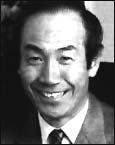 The main keynote speaker for the conference will be Tachi Kiuchi, Chairman and
CEO of Mitsubishi Electric America, the company which made the world's first CFC-free
refrigerator (winning the U.S. Environmental Protection Agency's award for its innovation).
The main keynote speaker for the conference will be Tachi Kiuchi, Chairman and
CEO of Mitsubishi Electric America, the company which made the world's first CFC-free
refrigerator (winning the U.S. Environmental Protection Agency's award for its innovation).
Mitsubishi Electric also makes some of the world's most efficient solar cells, and the new fuel cells that turn simple hydrogen to electricity, with no pollution. Fuel cell powered vehicles promise to be both lighter and safer, cost both the producer and consumer less, and have fuel efficiencies as high as 200 miles per gallon. It is these fuel cells that feature prominently in Paul Hawken's book Natural Capitalism, foretelling a fundamental transformation in the automobile and petroleum industries.
- Tachi Kiuchi is also chairman of the Future 500 group of companies — a network
of corporations who are exploring industrial ecology and advanced resource productivity. He
was also the first CEO of a major company to be trained in
The Natural Step, a programme developed by Karl Henrik Robert in Sweden to help companies avoid products and processes that
violate principles of sustainability in nature. Consequently, Mitsubishi Electric America has trained
all its managers in The Natural Step programme ... with the overall aim of integrating
the company's core operations with environmental policies that aim for the company to
operate within nature's limits.
Kiuchi: "It seems to me that the global business community is driving quickly toward a cliff, and we have our eyes closed. If we opened them, we would see that 600 million of the Earth's inhabitants — in Europe, Japan, and the United States — enjoy the material benefits of industrialism. Soon, 2.5 billion more — in China, India, the former Soviet republics — will join us. And after them, the final three billion will demand and deserve the same. To do that today, we need three planets. But we have only one. So we cannot do that by continuing to take our wealth from nature. We must learn a new way, a way to cultivate wealth like nature, to provide affluence without effluence. We must develop prosperous human communities, with meaningful work and social equity between various groups. And we must do so by consuming less from the environment, not more."
Source - Tachi Kiuchi speech "What I learned in the Rainforest", based on his address to the World Future Society on July 19, 1997 is available on the internet at http://www.globalff.org/Feature_Articles/Previous_Articles/Tachis_Adv/pre-tachi.htm
- RAY ANDERSON AND ZERO WASTE OF CARPETS
One of the clearest signals that the "waste" and "sustainability" issues have moved from the economic margins into the mainstream can be seen in the number of international business leaders taking an interest in Zero Waste principles.An outstanding example of this is found in Ray Anderson, chairman and CEO of the Atlanta-based Interface Inc, the world's largest producer of commercial floorcovering. Anderson was a keynote speaker at the Redesigning Resources conference in Christchurch in June (see The Jobs Letter No.127), and is considered a corporate "elder statesman" in his commitment and experience in pioneering a business strategy for sustainable development.
Anderson says that for the first 20 years of his corporation's existence, the main environmental policy was simply to comply with government regulations. Because carpets use a lot of nylon and polyesters, Interface was a very petro-chemically-intensive company. The corporation was a case study of old-age industrialism — a highly productive, take-make-waste manufacturing and consumption system that assumes infinite resources and infinite sinks for industrial wastes.
After studying the growing literature on sustainable business practices, Anderson took up a new challenge: to lead the way to "the next industrial revolution" by becoming the first sustainable corporation, and eventually a restorative enterprise.
Anderson: "What we call the next industrial revolution is a momentous shift in how we see the world, how we operate within it, what systems will prevail and which will not. At Interface, we are completely reimagining and redesigning everything we do, including the way we define our business. We believe that there's a cure for resource waste that is profitable, creative and practical. We must create a company that addresses the needs of society and the environment by developing a system of industrial production that decreases our costs and dramatically reduces the burdens placed upon living systems..."
- In line with by Paul Hawken's Natural
Capitalism principles of "moving to a
solutions-based business model", Interface redefined its business operations from "selling carpeting"
to "leasing floor-covering services". The corporation developed a new carpet material
that requires 97% less material and is completely recyclable, is more attractive and cheaper
to produce.
Interface also pioneered the world's first system of perpetual leases for carpet, which they called the Evergreen Lease. This means they don't only make the carpet (with recycled content) but they take responsibility for installing the carpet and maintaining it. They clean it regularly, and because it is system of free-lay carpet tiles, they replace worn and damaged areas ... enabling them to also recycle the carpet tiles that are replaced.
The consumer isn't buying a carpet — which, under the old system would have probably ended up in a landfill after 25 years. The consumer is now paying a monthly rental for the services that the carpets deliver — colour, texture, warmth, beauty, acoustics, comfort under foot and cleanliness.
Anderson is the first to admit that his corporation is only a small way along the journey towards sustainable business practices ... but it is determined to invest in the processes and technologies to get there. And if Interface can get it right, then Anderson believes that the corporation will never need to take another drop of oil from the earth.
Source — Ray Anderson "Mid-Course Correction — toward a sustainable enterprise, the Interface Model" (pub 1998 by Chelsea Green Publishing).
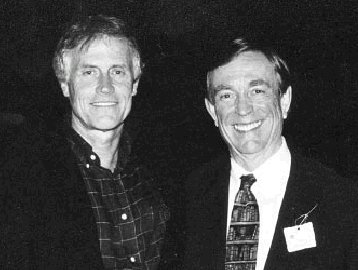
Paul Hawken and Ray Anderson at the Redesigning Resources Conference in Christchurch, June 2000- STEPHEN TINDALL AND ZERO WASTE FOUNDATION
The New Zealand corporate leader most identified with the sustainability message is Stephen Tindall, founder and director of New Zealand's largest retail group, The Warehouse.Tindall has sponsored speaking tours throughout New Zealand by both Paul Hawken and Ray Anderson — tours which have helped catalyse further initiatives such as the Redesigning Resources conference. The Warehouse company has set itself the goal of "zero waste to landfill" by 2020. It plans to reduce the amount of waste sent from stores to landfills by a third, and recycle paper, plastic and cardboard (which represent up to 80% of total waste) from all its stores.
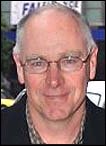 Tindall has also used his family's philanthropic trust, The Tindall Foundation, to
promote initiatives for sustainable development. This foundation is the main backer behind Zero
Waste NZ, the trust which has become an important catalyst in encouraging local authorities
and community enterprises to embrace a Zero Waste vision.
Tindall has also used his family's philanthropic trust, The Tindall Foundation, to
promote initiatives for sustainable development. This foundation is the main backer behind Zero
Waste NZ, the trust which has become an important catalyst in encouraging local authorities
and community enterprises to embrace a Zero Waste vision.
- Stephen Tindall's overall goal is to work towards New Zealand becoming "the
first sustainable country on earth". Tindall: "Because of our isolation and our small population,
our country is very "clean and green" relative to other countries in the world. However, when
you scratch the surface, there are a lot of things that we could do better with. I think that we have
an unbelievable opportunity to be world leaders as the first sustainable country ... and to take
from that a premium on our export goods and attract lots and lots of tourists because we would
have a true "clean and green" label..."
Tindall believes that just as New Zealand was once seen as the "social laboratory" of the early social-democratic welfare states ... perhaps, in this new century, New Zealand has a unique opportunity to become a "sustainable laboratory" for a planet that is finally coming to grips with the limits of the first industrial era.
Ray Anderson agrees: "It's not important if one company like Interface, based in Georgia, succeeds in this challenge ... but it's the influence that one little company has that will be important. If we can prove the model, then the influence will be enormous. The same will be true if New Zealand can do it. Your country is small enough that maybe all of New Zealand could do it. If the world could see a Sustainable New Zealand — the power of influence you would have will be enormous."
Source — "Working together to make New Zealand the first sustainable country on earth" video of Stephen Tindall and Ray Anderson, recorded at the Aotea Centre, Auckland, and at The Warehouse Support Centre, 31 May 1999.
- CBEC AND COMMUNITY ENTERPRISE
At the Kaitaia conference, the spotlight will also be on what community organisations can do to support the economic and employment spin-offs from a Zero Waste vision. Here, the "power of influence" can certainly be seen in the work of the Kaitaia Community Business and Environment Centre (CBEC).In the last ten years, CBEC has achieved a "turning of the tide" with a 66% reduction in waste carted from the Kaitaia to the Far North's only big remaining landfill, at Ahipara. The centre not only runs the town's recycling base and an associated kerbside collection, but operates depots in Te Hapua and Russell and is preparing a waste reduction plan for the Far North District Council. It has four tutors touring schools with a "slash trash" message, owns plant and tree nurseries from which it runs landscaping and afforestation services, and holds shares in a solar water-heating firm providing subsidised units to community-card holders.
CBEC has become a major employer in a district of high joblessness, paying $36,000 a month to about 20 staff, and hiring up to 100 people a year for contracts in a range of activities from forestry to running the town's public swimming pool.
- These successes, however, haven't come easily. CBEC general manager
Cliff Colquhoun says that the centre is constantly struggling for want of adequate
government support after a decade of trying to promote community economic development.
Although CBEC is hailed as a model of community enterprise, where few other such organisations
have survived for long, Colquhoun says it could be doing far more with just a modest lift
in Government cash.
The New Zealand Herald reports that the centre receives only about $45,000 a year in government development money, yet returns more than four times that amount in income tax and GST, while spending up to $500,000 in the local economy. It is also saving the district council at least $75,000 a year on avoided landfill costs, while working in a grey area of profitability under which commercial companies would not find it viable to employ people.
- Cliff Colquhoun is disappointed that CBEC has had to trim job-creating operations
to survive, while the government carries on spending more than $1 million a week
on unemployment and related benefits in Kaitaia, not counting crime and other social costs.
He points out that there is no way capital investment can create enough jobs for the area's
1,600 unemployed — a planned expansion of Juken Nissho's mill would produce 150 jobs at
most. Colquhoun believes the government needs to better support "social entrepreneurs", such
as himself, in order to create local opportunities in the community and environmental sectors.
Source — New Zealand Herald 11 November 2000 "Bucks to be made in zero waste" by Mathew Dearnaley and Simon Collins
- OTHER SPEAKERS
Other contributors to the Kaitaia conference include:— Gary Liss, President of Gary Liss and Associates,California, a company that helps public and private sector clients develop strategic solid waste and recycling policies, Zero Waste Plans, recycling contracts, resource recovery parks and joint ventures with innovative reuse, recycling and composting companies;
— Robin Murray, Visiting Research Associate at the Centre for the Study of Global Governance at the London School of Economics. Author of `Creating Wealth from Waste', which outlines the economic and employment potential of the new waste economy;
— Andy Moore, Coordinator of the Community Recycling Network a national umbrella organisation set up in the United Kingdom for over 250 community groups, co-operatives and not-for-profit businesses in the community waste sector;
— Ray York, Executive Officer of the Western Australian Waste 2020 Taskforce, which is promoting a strategic action plan with a target of Zero Waste by 2020;
— Robert Joy Executive Director, Environment Protection Authority, Victoria, and former Deputy Chair of the State Government's Resource Recovery and Recycling Council and EcoRecycle Victoria;
— Dan Knapp Founder and Executive Director of Urban Ore, a resource recovery centre and eco-industrial park in Berkeley, California;
— Eric Lomabardi Executive Director of Eco-Recycle, Boulder, Colorado; the largest community-based recycling organisation in the U.S.A., which currently processes over 3000 tons of recyclable materials per month and employs 55 staff.
- ZERO-WASTE COUNCILS IN NZ
There are now 25 local authorities participating in the Zero Waste network. Zero Waste NZ Trust reports that significant waste reduction outcomes are already being recorded by the councils and many new waste reduction initiatives and education programmes have been launched. The Trust: "It is inevitable that even greater waste reductions will occur over the next two to three years, creating a momentum that will fuel new innovations, businesses, jobs and local economic development."The Zero Waste councils include : Far North, Thames-Coromandel, Otorohanga, Kawerau, Whakatane, Opotiki, Gisborne, Wairoa, Hastings, Palmerston North, Masterton, Porirua, Nelson, Tasman, Buller, Westland, Kaikoura, Hurunui, Selwyn, Christchurch, Ashburton, Timaru, Mackenzie, Central Otago, and Dunedin
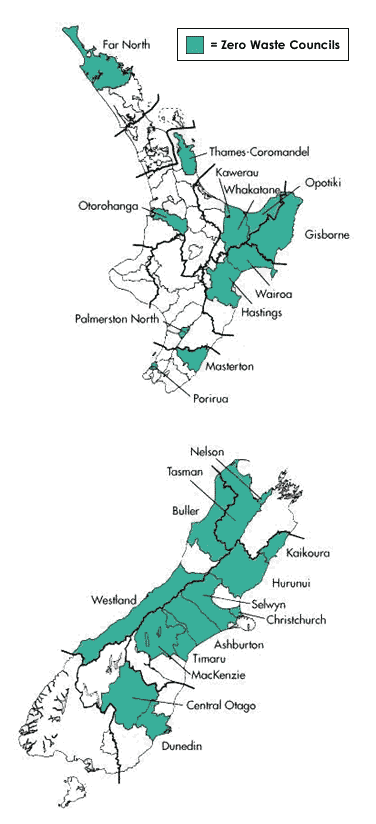
- SUSTAINABILITY AND ECOLOGICAL ECONOMICS
Media Watch. The November issue of the New Internationalist world development journal has been devoted to the theme of "searching for sustainable solutions" Editor Wayne Ellwood traces the current popularity of the term "sustainability" to the release in 1987 of the Brundtland Report which showed how unplanned economic growth has pushed the planet to its limits. To deal with the thorny issues of over-consumption by the rich combined with widespread poverty — both of which are continuing to trash the planet — Brundtland called for "... development which meets the needs of the present without compromising the ability of future generations to meet their own needs." -
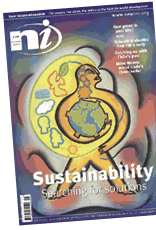 Ellwood argues that the idea of "sustainability" opens a deep fissure in the bedrock
of conventional economic thinking. Central to the new discipline of
ecological economics is the idea of `natural capital". This embraces the complete stock of the earth's natural assets —
fish, forests, arable soil, fresh water and clean air. It also includes the life support systems which
are maintained by the planet itself — the water cycle, the carbon cycle, the protective capacity
of the ozone layer, and the waste absorbing abilities of land, air and water. Some of this capital
is renewable as long as we don't over-harvest it. Some of it is replenishable over a long period
of time. Other kinds of natural capital like petroleum or minerals are non-renewable and any
use diminishes the stock forever.
Ellwood argues that the idea of "sustainability" opens a deep fissure in the bedrock
of conventional economic thinking. Central to the new discipline of
ecological economics is the idea of `natural capital". This embraces the complete stock of the earth's natural assets —
fish, forests, arable soil, fresh water and clean air. It also includes the life support systems which
are maintained by the planet itself — the water cycle, the carbon cycle, the protective capacity
of the ozone layer, and the waste absorbing abilities of land, air and water. Some of this capital
is renewable as long as we don't over-harvest it. Some of it is replenishable over a long period
of time. Other kinds of natural capital like petroleum or minerals are non-renewable and any
use diminishes the stock forever.
Ellwood: "Sustainability means living off our natural income, rather than our natural capital, and using it no faster than it can be replenished. The human load has grown so that current consumption exceeds natural income. We are liquidating our natural capital for short-term gain. But the human economy is a subset of the ecosphere, not the other way round. That is the key lesson of the natural capital analysis."
- THE POLITICS OF NATURAL CAPITALISM
The New Internationalist has also taken a critical look at the Natural Capitalism message of eco-entrepreneur Paul Hawken, and his co-authors Amory and L. Hunter Lovins.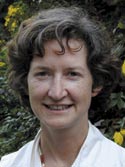 Writer Mary Jane Patterson acknowledges that the
Natural Capitalism manifesto is an "attractive vision of the future that is rare in its appeal to environmentalists and the
business community alike." But she argues that the authors are using a "popular, easy-to-assimilate
and apolitical definition of capitalism" which avoids political action on the objectives of equity
and overcoming consumerism.
Writer Mary Jane Patterson acknowledges that the
Natural Capitalism manifesto is an "attractive vision of the future that is rare in its appeal to environmentalists and the
business community alike." But she argues that the authors are using a "popular, easy-to-assimilate
and apolitical definition of capitalism" which avoids political action on the objectives of equity
and overcoming consumerism.
Patterson: "Natural capitalism may be reasonable and desirable ... but it is not the way the world runs at the moment. There are examples of businesses saving money while operating in a more environmentally friendly manner. But this doesn't mean that most businesses could follow suit. For most, absorbing the ecological and social costs of their operations would be expensive and perhaps suicidal, unless their competitors did the same.
"The changes [advocated by the book Natural Capitalism] would require substantial political intervention into the market and extraordinary political will at all levels from the municipal to the international. And this is not something that the natural capitalists address. Maybe they're right to assume they'll have more success if changes are wrapped in the cloak of neutral economic logic. But the reality is that the conditions for natural capitalism are unlikely to arise from the market itself. They will have to be imposed by co-operative, collective action — by governments and other organisations of civil society hip-deep in politics."
Source — New Internationalist No.329 November 2000 "Sustainability"; "Let's stop ransacking the Earth and start searching for sustainability" by Wayne Ellwood; "Natural Capitalism" by Mary Jane Patterson
- LINKS and RESOURCES
Warren Snow, and the Zero Waste NZ Trust can be contacted at P.O. Box 33-1695, Takapuna, Auckland phone 09-486-0734 or visit their website at http://www.zerowaste.co.nz - Jobs from Waste, special issue of The Jobs Letter No.118, is available on the Jobs Research Website at http://www.jobsletter.org.nz/jbl11800.htm
- Tachi Kiuchi speech "What I learned in the Rainforest", based on his address to the World Future Society on July 19, 1997 is available on the internet at http://www.globalff.org/Feature_Articles/Previous_Articles/Tachis_Adv/pre-tachi.htm
- The Future 500 website contains many practical articles for businesses pursuing sustainability objectives. This can be reached at http://www.globalff.org
- Ray Anderson is the author of "Mid-Course Correction — toward a sustainable enterprise, the Interface Model" (pub 1998 by Chelsea Green Publishing). This book contains Anderson's personal story towards taking up the sustainability challenge ... and the practical steps that Interface is taking to meet these goals.
- The Interface website is at http://www.interfaceinc.com
- "Working together to make New Zealand the first sustainable country on earth" video of Stephen Tindall and Ray Anderson, recorded at the Aotea Centre, Auckland, and at The Warehouse Support Centre, 31 May 1999.
- The Tindall Foundation, Annual Report and other information available from P.O.Box 33-181, Takapuna, Auckland phone 09-488-0170.
- The new internationalist website, which also contains back issues, can be reached
at http://www.newint.org
- VOICE
" The culture of the West is usually seen as deeply, even incurably, materialistic. Many of the evils that disfigure Western society, its greed and wastefulness, are blamed on an excessively materialist view of the world." This needs to be challenged. For a truly materialistic society would have a far greater respect for the material world than the West displays. How can its heedless abuse of the resource-base of the world be called materialistic?
" Truly materialistic societies are those of indigenous peoples, those who live in symbiosis with the earth, for they treat the source of their well-being with reverence. The fact that they make sacred what is useful to them helps to conserve and to continue traditional cultures.
" We in the West are in thrall to a curious form of mysticism: it is as though we were eager to tear through the fabric of the earth that sustains us, seized by a desire to reach the other side of destruction, to gut the planet of its treasures, so that we may face — and defy — the gulf that lies beyond. "
— Jeremy Seabrook, journalist, broadcaster, and author of "In the Cities of the South".

Top of Page
This Letter's Main Page
Stats | Subscribe | Index |
The Jobs Letter Home Page | The Website Home Page
jrt@jobsletter.org.nz
The Jobs Research Trust -- a not-for-profit Charitable Trust
constituted in 1994
We publish The Jobs Letter

Essential Information on an Essential Issue

Letter No.135
1 December, 2000
Next week, twenty-five district and city councils from throughout New Zealand will
be gathering in Kaitaia for the second annual Zero Waste conference. The councils, representing
a third of the country's local authorities, have joined the campaign to achieve as close as
possible to 100% recycling and reuse of their local waste streams by the year 2015.
The governance decisions made by these councils will not only help to save resources and the environment, they will also see the development of hundreds of skilled and "green collar" jobs in the recycling and the recovered materials industries. (see The Jobs Letter No.118). And these "jobs from waste" are only a part of the employment potential that many eco-entrepreneurs believe will come from New Zealand adopting "sustainability" as a key principle in its economic and social vision.
Zero Waste NZ trustee Warren Snow, in a special feature written for this issue, argues that may be possible for New Zealand to create full employment within 5 years by adopting measures for sustainable community economic development. Snow: "There are many jobs in communities that need doing even though they no longer support a living for a person and are not self-funding. The market will no longer deliver these jobs _ but the community sector, with a little support, can step in and create a local infrastructure that will result in both employment and community wellbeing."











